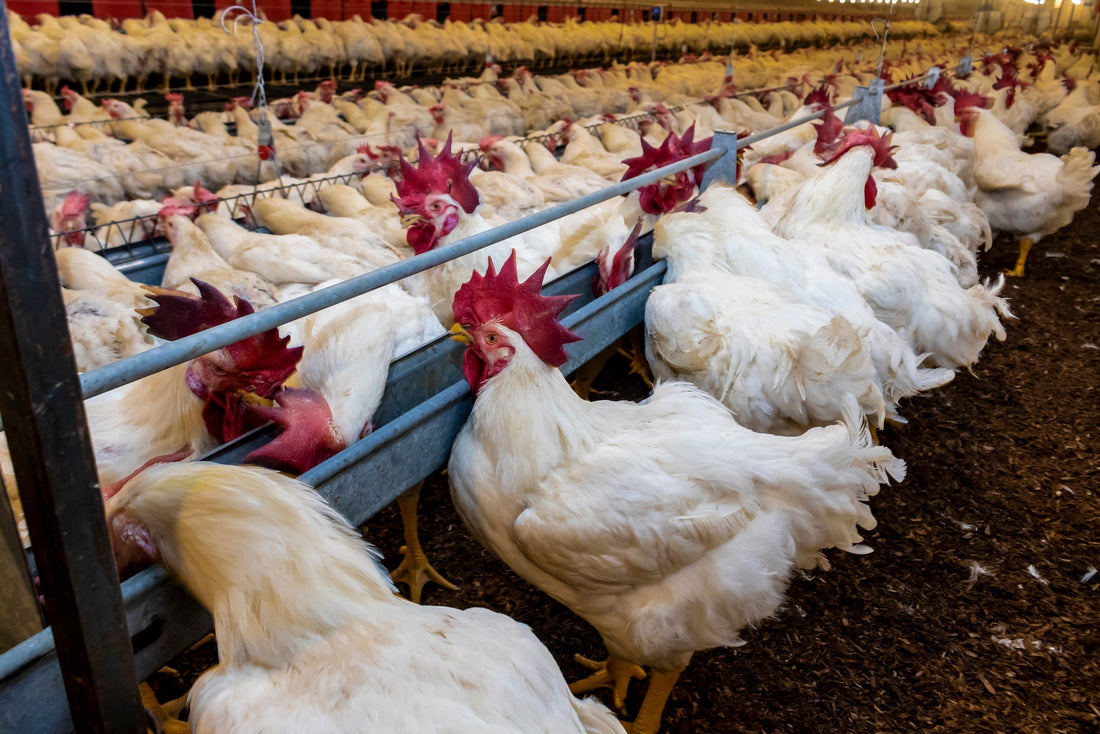In recent years, the advent of genetically modified (GM) chickens has opened up new frontiers in poultry farming and scientific research. However, this development comes with its own set of ethical dilemmas and debates. We'll explore the multifaceted issue of genetically modifying chickens, looking at the potential benefits, the concerns raised, and the ethical questions that arise.
Understanding Genetically Modified Chickens
Genetically modified chickens are those that have had their genetic material altered through genetic engineering techniques. These modifications are usually made for specific purposes, such as:
Disease Resistance: Making chickens resistant to common avian diseases, potentially reducing the need for antibiotics and improving overall flock health.
Enhanced Growth or Egg Production: Altering genetics to increase the growth rate or egg production efficiency.
Nutritional Modifications: Enhancing the nutritional profile of chicken meat or eggs.
Scientific Research: Creating models for human disease research.
The Benefits of GM Chickens
Disease Resistance and Health
One of the most significant potential benefits of GM chickens is disease resistance. By genetically engineering chickens to be resistant to specific diseases, farmers could reduce losses due to illness, thereby increasing productivity and sustainability. This could also lead to a reduction in antibiotic use, addressing public health concerns about antibiotic resistance.
Enhanced Food Production
GM chickens could potentially grow faster or lay more eggs, contributing to more efficient food production. This could be particularly beneficial in meeting the protein needs of a growing global population, especially in regions facing food scarcity.
Nutritional Improvements
Genetic modifications could also enhance the nutritional value of chicken meat and eggs, making them healthier food options. This could include increasing the levels of essential nutrients such as omega-3 fatty acids.
Ethical Concerns and Debates
Animal Welfare
One of the primary ethical concerns is the impact of genetic modifications on the welfare of the chickens. There are questions about how these modifications might affect the physical and psychological well-being of the animals. For instance, faster growth rates could lead to physical problems like skeletal and muscular issues.
Environmental Impact
The long-term environmental impacts of introducing GM chickens into ecosystems are not fully understood. There is a concern about potential unintended consequences, such as the effect on biodiversity and natural chicken populations.
Genetic Diversity
There's also a worry that reliance on genetically modified chickens could reduce genetic diversity within poultry species. Genetic diversity is crucial for the resilience of any species, helping them adapt to changes and resist diseases naturally.
Ethical Considerations in Genetic Engineering
The very act of genetically modifying animals raises fundamental ethical questions. It involves making irreversible changes to the genetic makeup of a species, which some argue could be overstepping our boundaries as humans and interfering with nature.
Navigating the Ethical Landscape
Regulatory Frameworks
To address these ethical concerns, robust regulatory frameworks are needed. These should ensure that any genetic modifications are safe for the chickens, the environment, and human consumers. They should also address welfare concerns and monitor long-term ecological impacts.
Public Dialogue and Transparency
There should be an
open dialogue between scientists, farmers, policymakers, and the public. Transparency in research and development processes can help build public trust and ensure that ethical considerations are taken into account at every stage.
Balancing Benefits and Risks
It’s essential to weigh the potential benefits against the risks and ethical concerns. For instance, while disease-resistant chickens could reduce the use of antibiotics, it's crucial to ensure that these modifications do not negatively impact the chickens' quality of life or lead to unforeseen environmental consequences.
Alternative Solutions
Exploring alternative solutions to the issues that GM chickens aim to address is also important. For example, improving farm management practices, enhancing biosecurity measures, or breeding chickens using traditional methods for disease resistance might offer less controversial solutions.
The debate over genetically modified chickens encapsulates a broader discussion about the role of biotechnology in food production and animal welfare. While the potential benefits are significant, especially in terms of disease resistance and food security, the ethical implications cannot be overlooked.
As technology advances, it's crucial that we approach these developments with a sense of responsibility and ethical mindfulness. The future of genetically modified chickens, and biotechnology in agriculture more broadly, will likely continue to be a topic of intense debate and exploration. As we navigate this complex terrain, let’s strive for a balance that respects both the needs of human society and the welfare of the animals and ecosystems we depend on. 🐔🌱🔬

